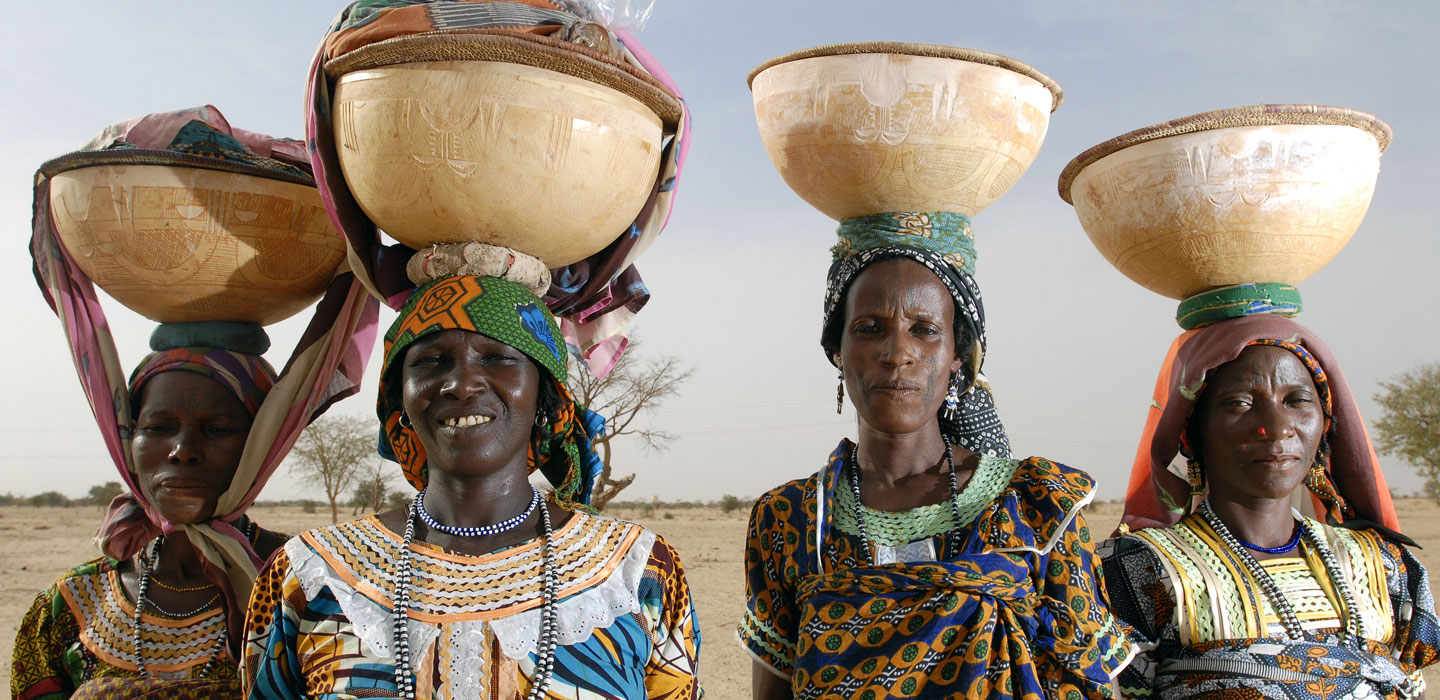Tools and guidelines
Tools and guidelines

Tools and guidelines
Menu Display
SearchResultsFilters
Search Results
Operational guidelines on IFAD’s engagement in pro-poor value chain development
These guidelines address recommendations on ensuring that IFAD’s pro-poor value chain development projects reach out to women and the very poor, apply a programmatic approach when needed, promote an inclusive value chain governance, work with the appropriate expertise and partners, and build capacity for implementation.
Adaptation Framework Tool
The Adaptation Framework is a repository of adaptation actions for small-scale agriculture, including livestock, forestry, and fisheries. It provides an approach for incorporating adaptation practices into project design.
Participatory Guarantee System case study report
In 2017, after several years of partnership between IFAD and Slow Food on themes related to food security, indigenous peoples and youth, IFAD approved a large grant project, called “Empowering Indigenous Youth and their Communities to Defend and Promote their Food Heritage,” to be implemented by Slow Food over three years.
How to prevent land use conflicts in pastoral areas
How to do note: Gender and pastoralism
PARM Final Report (2014-2019)
How to do note: Rapid livestock market assessment - A guide for practitioners
A manual in mobilizing migrant resources towards agricultural development in the Philippines
How to do note: Mainstreaming nutrition into COSOPs and investment projects
This How-to-do Note is a practical step by step operational guidance on mainstreaming nutrition in IFAD-supported country strategies and investment projects for use by IFAD staff, consultants and partners.
Supporting nutrition-sensitive agriculture through neglected and underutilized species: Operational framework
IFAD’s support for the better use of agrobiodiversity with specific reference to neglected and underutilized species (NUS) and a greater recognition of the traditional knowledge of Indigenous Peoples are important for fighting food and nutrition insecurity
PARM Annual Progress Report 2018
Guidelines for Impact Evaluation of Land Tenure and Governance Interventions
Climate Adaptation in Rural Development (CARD) Assessment Tool
The Climate Adaptation in Rural Development – Assessment Tool (CARD) is a platform to explore the effects of climate change on the yield of major crops.
Guidebook for mobilizing inclusive remittances for rural investment
Nutrition-sensitive value chains: A guide for project design – Volume II
Nutrition-sensitive value chains: A guide for project design – Volume I
The Nutrition-sensitive value chains: A guide for project design has been produced to fill a key knowledge gap in the emerging field of value chains for nutrition by providing guidance on how to design nutrition-sensitive value chain (NSVC) projects, with a particular focus on smallholder producers.
Toolkit: Engaging with pastoralists – a holistic development approach
How to do note: Engaging with pastoralists – a holistic development approach
Lessons learned: Engaging with pastoralists – a holistic development approach
How To Do Note: Access to finance for renewable energy technologies
Lessons learned: Access to finance for renewable energy technologies
Toolkit: Access to finance for renewable energy technologies
Women-led business and value chain development; a case study in Tajikistan
Investments in smallholder goat development and related value chains are effective means to reduce poverty and increase the incomes of men and women from resource-poor households. They are also effective channels to promote gender equality and women’s empowerment in remote mountainous
areas.
Rural women's leadership programme in grass-roots organizations: a case study in Nepal
Indigenous Peoples Glossary (English, French, Spanish)
Secretary (Language Services) and the Indigenous Peoples Desk in the Policy and Technical Advisory Division. The purpose of the glossary is to ensure
consistency and accuracy of terminology in English, French and Spanish, and standardize the terminology used in relation to indigenous peoples in official
documentation and publications, and in all aspects of meeting preparations. It is intended for use by IFAD staff, indigenous peoples' organizations and other
interested parties. Terms and definitions are accompanied by details of the source document and its date of publication.
Integrated promotion of gender equality and women's empowerment: economic empowerment, decision-making and workloads
address the cross-cutting and multifaceted nature of gender inequality through multiple entry points.